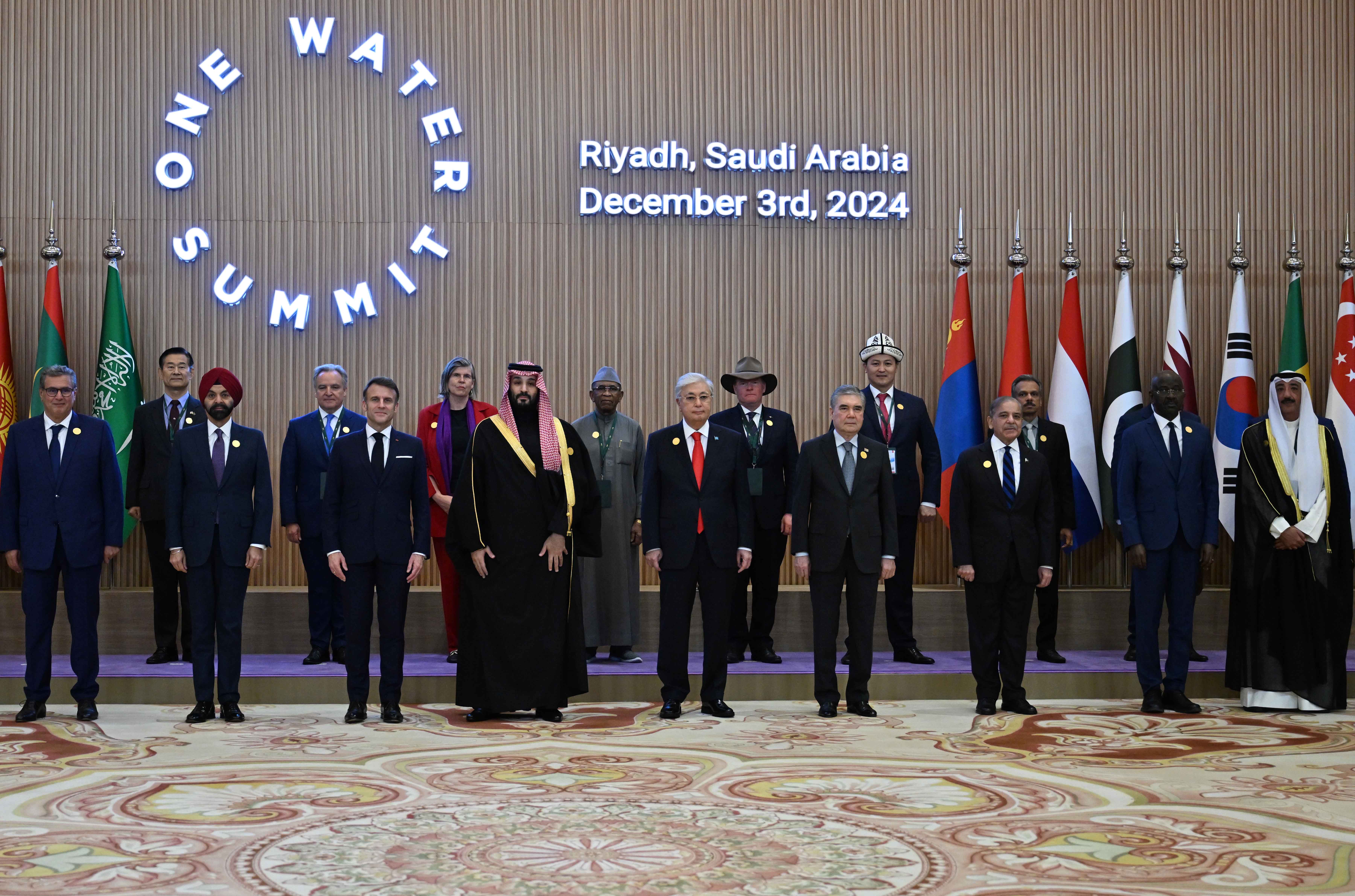Kazakhstan: Pioneering Water and Climate Action at One Water Summit and COP29
Kazakhstan is stepping onto the global stage as a key advocate for sustainable water management and climate action. At the recent One Water Summit, held on December 3, 2024, in Riyadh, and COP29 in Baku, Kazakhstan demonstrated its commitment to addressing some of the world’s most pressing environmental challenges.

The One Water Summit, co-hosted by Kazakhstan alongside France, Saudi Arabia, and the World Bank, convened global leaders, including Kazakh President Kassym-Jomart Tokayev, Saudi Crown Prince Mohammed bin Salman, French President Emmanuel Macron, and World Bank President Ajay Banga. The summit aimed to enhance global water governance, accelerate progress on Sustainable Development Goal 6 (clean water and sanitation), and generate innovative solutions for integrated water management. As a co-host, Kazakhstan’s leadership underscored its dedication to tackling both national and global water challenges.
President Tokayev’s address at the summit spotlighted Kazakhstan’s active role in advancing water solutions. He reaffirmed the country’s participation in the global Freshwater Challenge, a commitment to achieving universal access to clean water. Kassym-Jomart Tokayev proposed creating a Partnership for Global Glacier Research to counteract the alarming rate of glacier loss and advocated for strategic investments in water-efficient agriculture and renewable energy. He also emphasized the potential of technological innovations to combat water pollution and enhance irrigation systems. Kazakhstan’s plan to host a Regional Climate Conference in 2026, supported by the UN, further highlights its proactive approach.
Kazakhstan’s contributions extended to COP29 in Baku, held from November 11 to 22, 2024, where the delegation, led by President Tokayev, showcased ambitious climate initiatives. Reaffirming its commitment to carbon neutrality by 2060, Kazakhstan advocated prioritizing climate finance for vulnerable regions and highlighted innovative solutions such as AI-driven water and land management systems. President Tokayev also announced plans for a nuclear power plant to reduce emissions, alongside proposals for methane reduction, carbon farming, and disaster risk management.
Kazakhstan’s leadership in environmental initiatives, such as chairing the International Fund for Saving the Aral Sea, aligns with its role in these landmark events. By tackling transboundary water challenges and advancing climate resilience, Kazakhstan not only addresses its domestic concerns but also positions itself as a global leader in sustainable development. As the international community looks to the next UN Water Conference in 2026, Kazakhstan’s contributions to integrated water and climate solutions set a benchmark for global cooperation.


